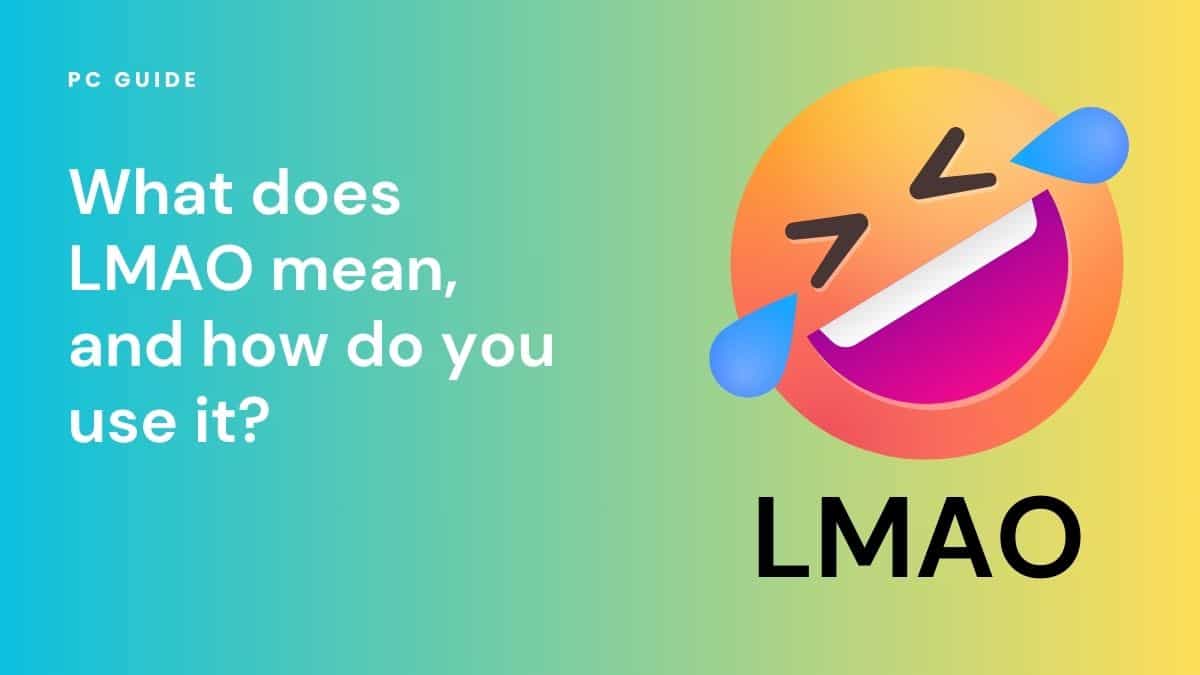What does LMAO mean, and how do you use it?

Table of Contents
Have you ever come across the term “LMAO” when texting with your friends on any social media apps and sites? Here's what this acronym stands for and what it means. Plus, we’ll show you how to use it in conversations online.
What does LMAO mean?
LMAO is an abbreviation that stands for “Laughing My Ass Off.” It’s part of a family of acronyms that express amusement or laughter, often in response to something humorous or funny. Using “my ass off” adds an extra layer of emphasis beyond simply ‘LOL’ (laughing out loud), indicating that the laughter is intense or prolonged. Usually, the acronym appears in uppercase, but can also be stylized in lowercase too.
You can think of it as similar to using “ROFL” or “Rolling On the Floor Laughing.” It shows that something is extremely funny.
Although this might seem like a new bit of slang, it’s actually been around since at least the 1990s, when early adopters of online communication started using the phrase. But the explosion in popularity of social networks and instant messaging has encouraged textspeak to grow in general use, both online and in real life.
How do you use LMAO?
Using LMAO is simple; you can use it in various contexts to express that you found something funny. Usually this is done in writing, over an internet chat or in text messages. Here are some common ways to use LMAO effectively:
- In response to a joke: If someone tells you a joke that makes you laugh out loud, you can respond with “LMAO!” This indicates that you found the joke hilarious.
- Example:
- Friend 1: “Why did the scarecrow win an award?”
- Friend 2: “I don’t know, why?”
- Friend 1: “Because he was outstanding in his field!”
- Friend 2: “LMAO, that’s a good one!”
- Reacting to a funny meme or video: You might find amusing memes or videos when browsing social media or messaging platforms. In such cases, commenting “LMAO” is a quick and effective way to express your laughter. For instance, a user can comment on a funny cat video like “LMAO, this cat’s antics are hilarious!”
- Acknowledging a humorous statement: If someone makes a witty comment during a conversation, you can show your appreciation by responding with “LMAO.”
- Example:
- Friend 1: “I told my computer I needed a break, which gave me a coffee break error message!”
- Friend 2: “LMAO, that’s some advanced technology humor!”
- Self-deprecating laughter: You can also use LMAO to poke fun at yourself lightheartedly when sharing a funny or embarrassing story about yourself. Here's how you can use it in a sentence, “I just walked into a glass door thinking it was open. LMAO, I’m so clumsy!”
- Online gaming: In online gaming, players often use the phrase to react to amusing in-game situations, comments, or jokes made by fellow gamers.
- Example:
- Player 1: “Did you see that epic fail I just had?”
- Player 2: “LMAO, you tried your best!”
Conclusion
You can easily use LMAO in the proper context if you know what it means. The key is to keep it appropriate. Be mindful of the context and your audience, and avoid using it in situations where seriousness is required, such as professional emails or formal communication. It could be considered a little offensive to mention body parts. So, when using this internet acronym, stick to social media platforms or casual, out-of-office conversations.
If you’re curious about other textspeak slang, why not check out this guide.
